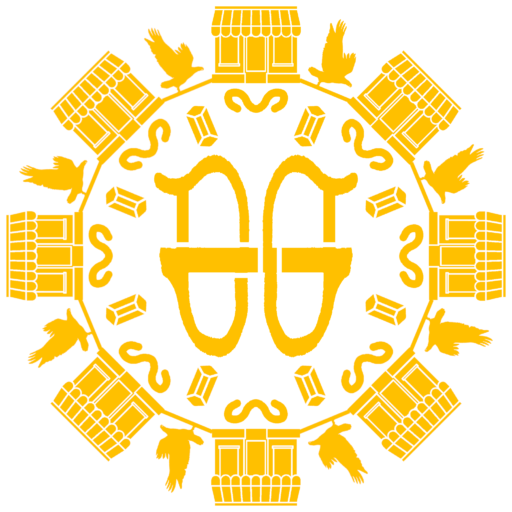I could not find a lot of books about Giuseppe Verdi, but it would appear that my grandmother has one that appeared to have been originally purchased from the Metropolitan Opera Gift Shop.
Plot
It follows Giuseppe Verdi\’s life from a peasant background to a famous opera-writer. There are plenty of accounts of Verdi\’s relationships with people who worked with him, who were personally involved with his life, and who did both.
Themes
The biography makes it perfectly clear about Verdi\’s inspirations behind his writing, with Victor Hugo being the most prominent for his story-telling. This was what distinguished him from Richard Wagner, who was also an opera-writer. Indeed, there were clashes between the two, with Wagner relying more on the symphonic elements and Verdi on the human elements. Verdi always provided a story-telling foundation from other writers like William Shakespeare–especially in his two final plays about Othello and Falstaff.
The impact of religiosity within the life of Verdi–who was agnostic–involved the state\’s clash with his creativity. In his childhood, music was forbidden in the chapels. When he wrote his opera about the Crusades, the church decried it because it featured baptism outside of the church. What was important to Verdi\’s success was how willing he was to progress with the time he was living in, which was the unification and secularization of Italy.
His success was also propelled by the impact his plays had on the audience. In which case, the audience started identifying with the protagonists of the operas in their effort to bring about a new Italy. As a result, Verdi–during the time that the Italian city-states were fighting back against Napoleon\’s invasion–felt a sense of moral obligation to rally the Italian people with his plays centered on patriotism. He also felt it as a commoner who was one of the few to actually enjoy the company of nobility. Near the end of his life, he contributed to a scholarship for young, gifted musicians.
Other European countries were also within Verdi\’s sights, though they were less favorable than in Italy. Although he managed to find some success in France, England was far less forgiving. There is a lot of historical context given whenever Verdi has to deal with any of them.
Since the time that he lived in was rife with conflict, Verdi had to make numerous changes throughout his opera career, so as not to explicitly imply that the tragic character is based on the real-life figure. Oftentimes, Verdi had to write so many plays that he had no passion for, even though they turned out to be successful.
There is also personal conflict in Verdi\’s life, since he always struggled with depression. Nonetheless, he managed to continue writing his operas.
Verdi
He was born in an Italian village and rose to become one of the most notable opera writers in the world. The details of his personal life, such as his supposed affairs, are hinted at by his letter correspondences. Although they were exclusively directly involved in his work, he was luckily able to succeed in his work without being personally compromised. Though he has been noted for experiences fits of depression every time a friend or mentor dies.
Writing Style
Since this biography is about an opera-writer from Italy, the biography contains a lot of Italian names, place-names, and opera terms. This can feel overwhelming to anyone outside of Italy, though Wechsberg takes the time to explain the opera terms at one point.
Wechsberg manages to write a particular event in Verdi\’s life and then writes about a similar event either years after or before. This helps to provide a sense of connectivity to Verdi\’s pursuits.
Real World Application
A lesson that might be taken from Verdi\’s life is that no matter how much tasks seem like chores within your preferred occupation, there will always be an opportunity to advance towards a passionate project that really is a labor of love. This would include plowing through any depressive spells in any way possible. Also, a hint that someone has enjoyed their life in their field is when he insists on seeing his work despite the doctors\’ orders not to, which was exactly what Verdi did.
Another point to note is that every writer has a literary mentor. That was especially the case with Verdi, who regarded Hugo as the foundation for his own plays. It is always a duty for any creative person to conduct research on their own literary mentors, not just their works but also their lives and how they became famous.
While it is important to be creative, Verdi also had to be adaptive with his work and not let any character resemble a real-life figure. There would have been struggles in his career if he did not work his way around the restrictions like he did with one play where the Swedish king was replaced by a Boston colonial governor.
While fantastical as it might have been, the important point about getting into a creative profession like Verdi is to be socially relevant, since the audience are the participants of the author\’s success. They are the ones who not only place the works in their shelves but also within their hearts. Not only was Verdi regarded as a talented opera-writer but also as an Italian patriot.
Suggest This To…
- Anyone who wants to get into opera though has enough knowledge about the opera terminology to be able to read through this biography. Unless there are more updated biographies of Verdi\’s life, this one sufficed enough for me.
Wechsberg, Joseph. \”Verdi.\” G. P. Putnam\’s Sons. 1974.
Image Attribution: Micky Milkyway
